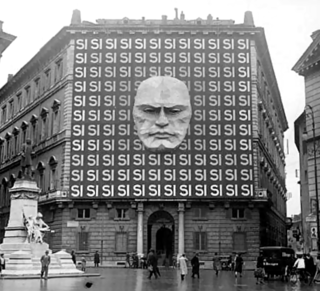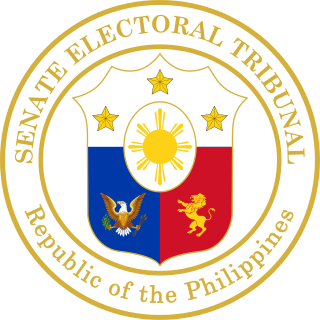 W
WThe ballot laws of the Roman Republic were four laws which introduced the secret ballot to all popular assemblies in the republic. They were all introduced by tribunes, and consisted of the lex Gabinia tabellaria of 139 BC, applying to the election of magistrates; the lex Cassia tabellaria of 137 BC, applying to juries except in cases of treason; the lex Papiria of 131 BC, applying to the passing of laws; and the lex Caelia of 107 BC, which expanded the lex Cassia to include matters of treason. Prior to the ballot laws, voters announced their votes orally to a teller, essentially making every vote public. The ballot laws curtailed the influence of the aristocratic class and expanded the freedom of choice for voters. Elections became more competitive. In short, the secret ballot made bribery more difficult.
 W
WA ballot selfie is a type of selfie that is intended to depict the photographer's completed ballot in an election, as a way of showing how the photographer cast their vote. Ballot selfies have risen in prominence alongside the increasing availability of smartphone digital cameras and the use of social media in the 21st century. They have also generated controversy as potential violations of laws enacted in the late 19th and early 20th centuries to curtail vote buying, particularly in the United States, though some U.S. courts have rejected restrictions on ballot selfies as inconsistent with the U.S. Constitution's First Amendment guarantees of freedom of speech.
 W
WThe Elections Modernization Act was enacted as Bill C-76 by the 42nd Parliament of Canada under the government of Justin Trudeau as a response to the Fair Elections Act. The bill received royal assent on December 13, 2018, in time for the 2019 Canadian Election.
 W
WGetup Ltd v Electoral Commissioner (2010) was a landmark decision made by the Federal Court of Australia on 13 August 2010 allowing Australians to enrol online in future elections. The Federal Court ruled in favour of GetUp! in their challenge of the Commonwealth Electoral Act 1918, that rejected first-time voter, Sophie Trevitt’s electronic enrolment application after her electronic signature was deemed invalid.
 W
WRichard L. Hasen is an American legal scholar and expert in legislation, election law and campaign finance. He is currently Chancellor's Professor of Law and Political Science at the University of California, Irvine School of Law.
 W
WThe Indonesian electoral law of 2017, also known in Indonesia as Undang-Undang Pemilu, is the law regulating elections in Indonesia. Officially, it is known as the Law Number 7 of 2017. The law was passed in July 2017 following nine months of debate in the People's Representative Council.
 W
WThe Italian electoral law of 2015, also known as Italicum, was an Italian electoral law passed in 2015. The law, which came into force on 1 July 2016, regulated only the election of the Chamber of Deputies, replacing the previous electoral law of 2005, which had been ruled partly unconstitutional by the Constitutional Court of Italy in December 2013. It provided for a two-round system based on party-list proportional representation, including a majority bonus and a 3% election threshold. Candidates would have run in 100 multi-member constituencies using open lists. The largest party which won over 40% of the vote would automatically win a majority of seats; if no party won 40% of seats, a second round of voting would be held between the two largest parties, with the winner of the second round winning a majority of seats. The name "Italicum" was coined in 2014 by Democratic Party secretary and later Prime Minister Matteo Renzi, who was one of the legislation's main proponent.
 W
WThe Italian Electoral law of 2017, colloquially known by the nickname Rosatellum bis or simply Rosatellum, after Ettore Rosato, the Democratic leader in the Chamber of Deputies who first proposed the new law, is a parallel voting system, which act as a mixed system, with 37% of seats allocated using a first past the post electoral system and 61% using a proportional method, with one round of voting. The Senate and the Chamber of Deputies did not differ in the way they allocated the proportional seats, both using the largest remainder method of allocating seats.
 W
WThis is a list of controversial elections arranged by continent and date.
 W
WAquilino Pimentel III versus Juan Miguel Zubiri better known as Pimentel v. Zubiri is a SET Case No. 001-07 that resolved the election protest filed by Koko Pimentel after the proclamation of Juan Miguel Zubiri as senator after the 2007 Philippine Senate election. The Senate Electoral Tribunal (SET) on June 19, 2008, resolved to proceed with the election protest of Pimentel against Senator Zubiri: "Indeed, there is reasonable ground to believe that the final outcome of the case could affect the officially proclaimed results of the 12th senatorial position in the 2007 Senate election, hence, the election protest case deserves further proceedings by the tribunal.
 W
WRowe v Electoral Commissioner is a High Court of Australia case dealing with the requirement of the Australian Constitution that members of Parliament be "directly chosen by the people". The High Court held that Commonwealth legislation that sought to restrict the time in which a person may seek to enroll in an election or alter their enrolment details after the writs for an election have been issued was invalid.
 W
WA voter identification law is a law that requires a person to show some form of identification in order to vote. In many jurisdictions requiring voter IDs, voters who do not have photo ID often must sign a Challenged Voter Affidavit in order to receive a ballot to vote.
 W
WThe history of voting rights in Nigeria mirrors the complexity of the nation itself.